Guide to Vegan Certifications, Animal Testing Claims, and more.
Here’s a little guide to the logos and claims you see on product packaging relating to whether something is vegan or has been tested on animals. They apply to cosmetics, foods, household cleaning products, clothing, and accessories. The logos below are the only ones certified by established non-profits, and even they’re not foolproof. If you see other similar logos, like of a rabbit or a V, it’s possible the company is telling the truth about their products but it’s a little sketchy knowing that consumers might confuse the symbol for one of these.
List of certification logos and their meanings
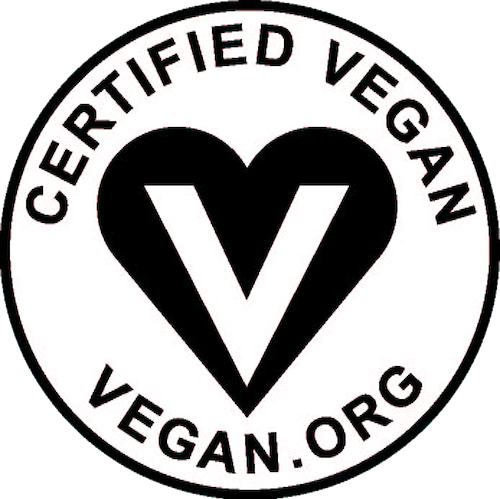
- Meaning: The product contains no animal ingredients, did not use any animal ingredients in their manufacture (for example, bone char in the case of some sugar, or fish bladder in the case of some wines), involved no animal testing of ingredients or finished product by supplier, producer, manufacturer, or independent party, used no animal-derived GMO’s or genes in the manufacturing process.
- Issued by: Vegan Action
- Requirements: Company must provide supplier verification regarding ingredients, testing, and processing. Vegan Action will review application and may contact suppliers and manufacturers. Company must pay an annual fee, based on their revenue, to license the logo for use on their products.
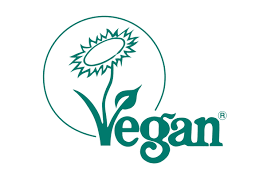
- Meaning: The product contains no animal ingredients, its ingredients have not been tested on animals by or on behalf of the company, the processing aids used in the manufacturing process are vegan, and contains no GMO’s from animal genes.
- Issued by: The Vegan Society
- Requirements: The Vegan Society reviews each application, makes queries about any potential animal ingredients and performs audits for cross contamination. Company must pay an annual fee, based on their revenue, to license the logo for use on their products.
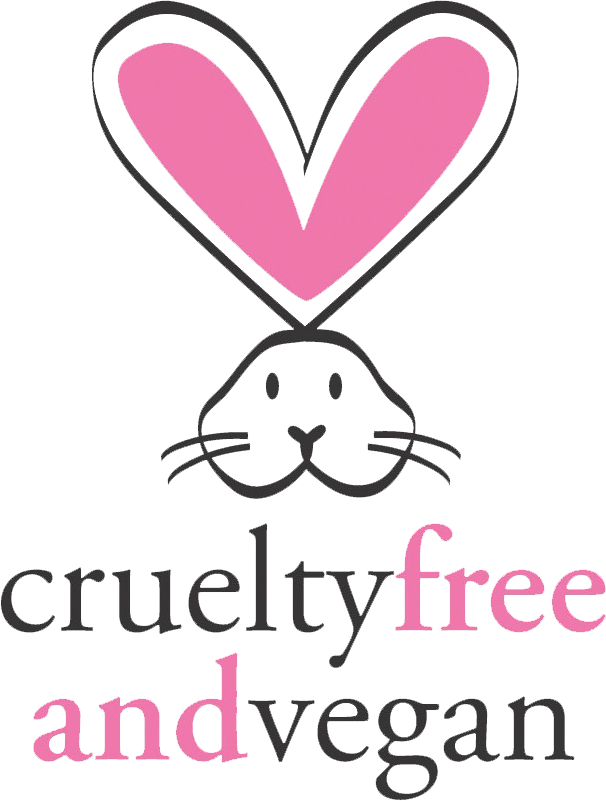
- Meaning: A company does not test on animals or use animal ingredients.
- Issued by: PETA’s Beauty Without Bunnies program
- Requirements: Compliance is self-reported. The company must complete a short questionnaire and sign a statement of assurance verifying that they do not conduct, commission, or pay for any tests on animals for ingredients, formulations, or finished products, that they do not use any ingredients derived from animals, and that they pledge not to do so in the future. They will then be listed in PETA’s directory for free but must pay a licensing fee to use the logo on their products.
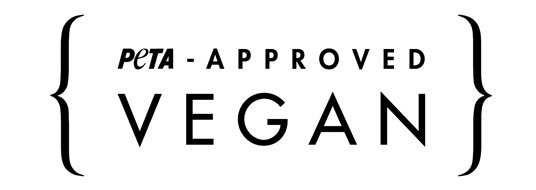
- Meaning: This logo is specifically for clothing and accessories and means either an individual product or a company’s entire product line does not use any materials from living or killed animals.
- Issued by: PETA
- Requirements: Compliance is self-reported. The company must complete a short questionnaire and sign a statement of assurance regarding their products.

- Meaning: Applied to a company or individual product, the logo may be used only when no animal materials are used. Currently only in Italy.
- Issued by: LAV (Lega Anti Vivisezione – Anti-vivisection league in Italy)
- Requirements: Not sure, waiting to hear back.
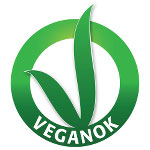
- Meaning: Applied to individual products when no animal materials are used. Based in Italy.
- Issued by: VeganOK
- Requirements: Not sure, waiting to hear back.
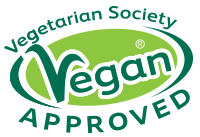
- Meaning: Free from animal-derived ingredients, no cross-contamination during production, GMO-free, no animal testing carried out or commissioned.
- Issued by: Vegetarian Society
- Requirements: Someone from the Vegetarian Society checks the company’s ingredient lists and specification sheets. Companies must pay to license the logo for use on their approved products.
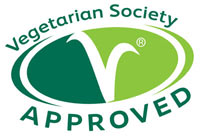
- Meaning: Vegetarian, defined as free from any ingredient resulting from slaughter. No cross-contamination during production, only free-range eggs are used, GMO-free, no animal testing carried out or commissioned. Non-vegan products may still have this logo.
- Issued by: Vegetarian Society
- Requirements: Someone from the Vegetarian Society checks the company’s ingredient lists and specification sheets. Companies must pay to license the logo for use on their approved products.
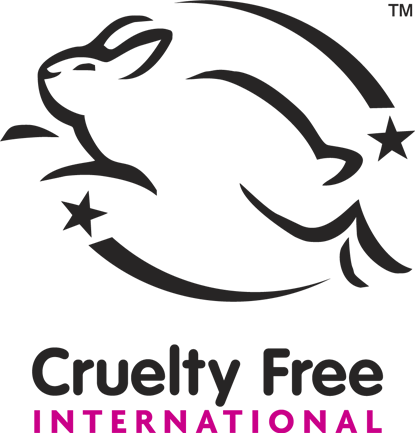
- Meaning: This logo, which may or may not have the words below the bunny, is given to companies that do not conduct animal tests, commission animal tests, or buy from suppliers who conduct animal tests, and do not sell their product in any country where animal testing is required. Ingredients must not have been tested within a certain fixed number of years. Non-vegan products may still have this logo.
- Issued by: Cruelty Free International’s Leaping Bunny Program includes the Coalition for Consumer Information on Cosmetics and the European Coalition to End Animal Experiments
- Requirements: Companies must agree to submit their supply monitoring system to an independent auditor. Companies must submit declarations of compliance from all third-party manufacturers and suppliers, or insert specific language into purchase orders.
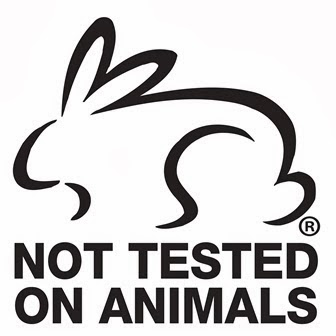
- Meaning: This certification applies to a company as a whole and relates to animal testing and a few ingredient restrictions. The Choose Cruelty Free (CCF) logo means none of the company’s ingredients or finished products have been tested by the company or on its behalf by a third party within five years of applying for accreditation. It is unclear whether companies must pledge never to test in the future as well. The company also pledges that it does not use any ingredients from an animal killed specifically for that ingredient, any byproducts of the fur industry, from wildlife, extracted from a live animal in a way that causes pain, that are slaughterhouse coproducts. Some non-vegan products may have this logo.
- Issued by: Choose Cruelty Free
- Requirements: Companies must have existed for at least a year and fill out a questionnaire and sign a legally binding contract. How legally binding this is is unclear. Companies must pay a one time accreditation fee and a yearly licensing fee if they wish to use the logo on their products. CCF will only accredit a company if any parent company or subsidiaries are also accredited – that’s why they won’t accredit the Body Shop. Companies are regularly asked to undergo reaccreditation but how often is not clear.
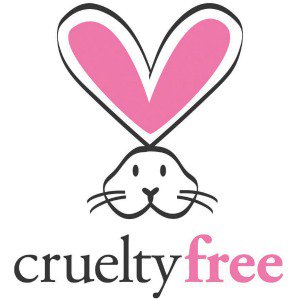
- Meaning: This logo means a company does not condition or conduct animal tests of its ingredients or products. Non-vegan products may have this logo.
- Issued by: PETA’s Beauty Without Bunnies program
- Requirements: Company must complete a short questionnaire and sign a statement of assurance verifying that they do not conduct, commission, or pay for any tests on animals for ingredients, formulations, or finished products and that they pledge not to do so in the future. They can then pay a one-time $100 licensing fee to use the logo on their products.
Unofficial label claims
“Vegan”
“Vegan Friendly”
“Suitable for Vegans”
“No Animal Ingredients”
“Vegan Approved”
(any symbol with a V or the word Vegan not listed above)
- Meaning: The implied meaning is that the product is vegan and therefore contains no ingredients derived from living or killed animals. However, I have seen labels that said this, and then found non-vegan ingredients listed. It’s also impossible to tell whether animal ingredients were use in the manufacturing process that might not show up on an ingredients list (like bone char or isinglass) which is why an audit of the entire supply chain is necessary. When in doubt, put the ingredients in our Double Check Vegan ingredient search engine, or call the company to confirm whether a product is vegan.
- Issued by: The graphic designer of the label will add this information at the company’s request, but there is no legal authority over the use of these words.
- Requirements: None.
“Vegetarian”
“Suitable for Vegetarians”
“Vegetarian Approved”
- Meaning: The implied meaning is that the product is vegetarian and therefore does not have any ingredients from killed animals. However, this does not indicate whether animals such as egg-laying hens or dairy cows suffered for the product, or whether ingredients from killed animals were used in the manufacturing process (as in the sugar and wine industry), or whether animal testing was performed in which animals are injured and usually killed after the tests. This is why an audit of the entire supply chain is necessary for these statements to really be meaningful.
- Issued by: The graphic designer of the label will add this information at the company’s request, but there is no legal authority over the use of these words.
- Requirements: None.
“Cruelty-free”
“No animal testing”
(any symbol with a bunny not listed above)
- Meaning: The implied meaning is that the product was not tested on animals. Without certification from an established organization, these statements are essentially meaningless. The company may have hired a third party to perform tests or choose to sell in a country that requires animal testing. Products may use ingredients from animals that suffered or were killed but still use the words “cruelty-free” since it is seen as only applying to animal testing and not to the source of ingredients.
- Issued by: The graphic designer of the label will add this information at the company’s request, but there is no legal authority over the use of these words.
- Requirements: None.
